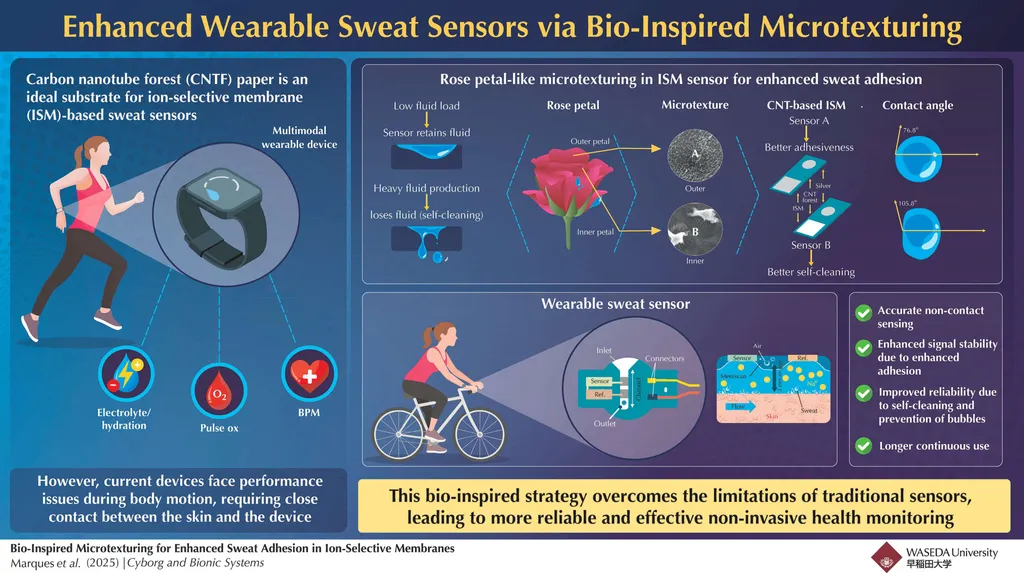In a groundbreaking development that could revolutionize healthcare monitoring, researchers have created a novel biomemristor capable of efficiently tracking sweat pH levels. This innovation, led by Zijun Xu from the Department of Hepatobiliary Surgery at the First Affiliated Hospital of Xi’an Jiaotong University, opens new avenues for smart healthcare services powered by artificial intelligence (AI).
Memristors, known for their ability to mimic neural synapses and enable parallel computing, have primarily been explored in brain-like chips and neuromorphic computing. However, their potential in healthcare has remained largely untapped. Xu and his team have bridged this gap by developing a pH-responsive memristor with a unique structure: Ag/Poly(diethylene glycol ester thioctic acid)-Li/FTO. This device exhibits excellent resistance switching behaviors and self-rectifying characteristics, making it highly sensitive to pH changes.
The memristor’s design leverages the cationic conduction properties of the C-S bond in Poly(diethylene glycol ester thioctic acid) and the unique metal-oxygen coordination bond. “This synergistic mechanism allows for precise acid-base discrimination,” explains Xu. The device can determine solution pH levels accurately within just three minutes by analyzing the time-dependent ΔIF-R parameter, which measures the difference between forward peak and reverse currents.
One of the most compelling applications of this technology is in monitoring health status through sweat. The researchers successfully applied the device to determine sweat pH levels, demonstrating its potential in non-invasive preliminary diagnosis and early warning of metabolic diseases such as diabetes. “This work provides new insights for the rapid development of smart wearable medical devices,” says Xu.
The implications of this research extend beyond healthcare. The energy sector, in particular, could benefit from the integration of such advanced biomaterials into wearable technology. As the demand for smart, energy-efficient devices grows, innovations like this pH-responsive memristor could pave the way for more sophisticated and sustainable energy solutions.
Published in the journal ‘Materials Today Advances’ (translated to English as ‘Advanced Materials Today’), this study highlights the transformative potential of memristors in healthcare and beyond. As the field continues to evolve, the insights gained from this research could shape the future of smart medicine and energy technologies.

